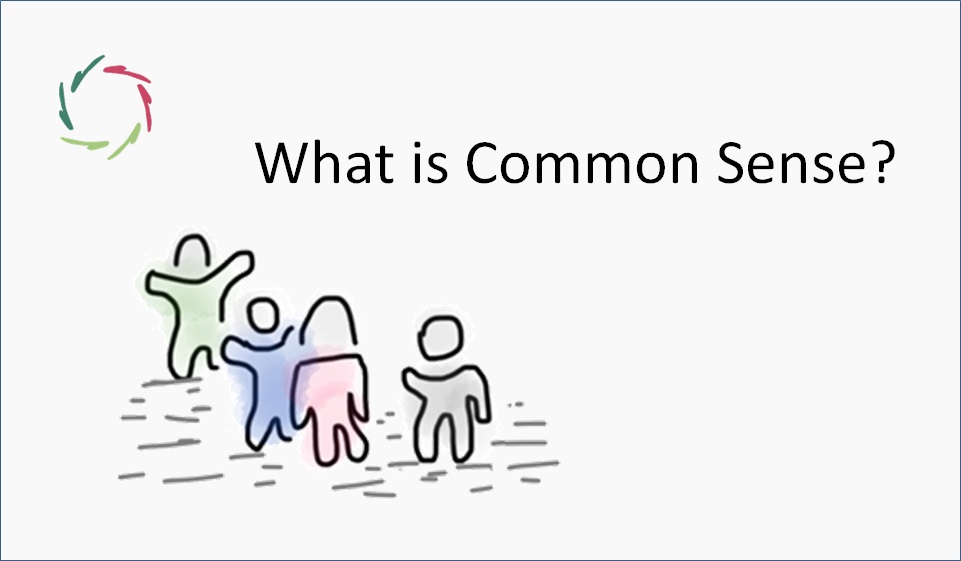What is Common Sense?

Common sense is, by definition, supposed to be sensible as well as common to most people. When trying to bring common sense to A.I., it becomes clear there is more under the hood than just a humming. Toward developing A.I., it’s imperative to listen intently to the humming.
In Dutch (my language, spoken by a few people), other terms for common sense are, literally, healthy sense or farmers’ sense.
So, how does a healthy farmer think?
Mainly, he starts from the obvious.
The farmer is not supposed to be extraordinarily smart. Not bothered by the latter, he looks at the earth and sky and decides correctly enough when to sow and harvest. It’s part intuition, part not making things unnecessarily challenging.
Others may deem the farmer unsophisticated.
He doesn’t care. Precisely this not-caring is an integral part of his common sense. Doing so, he differentiates the important from the less important and frequently succeeds in his goals — not always, but good enough.
You see? Good enough is common sense. This can underlie a more sophisticated level but not necessarily.
‘Good enough’ can be seen as the fundament of common sense.
Not more resources (time, energy, money, processing power) are spent than what is needed to keep things going well enough. Of course, this may be ‘very well’ indeed — no call to denigrate excellence.
Essential to this is the ability to discern what’s important at different levels of abstraction. For instance, to the farmer, one level of abstraction flows daily and another one flows season after season.
Differentiating levels of abstraction is equally vital in A.I.
Unlike an astrophysicist, the farmer doesn’t need much conceptual knowledge.
Again, he needs just enough and of the right kind, situation dependent. More knowledge might distract him from his commonsense goals.
For A.I., just enough mainly means not too much, or better even: not too much of what can stand in the way. This may be accomplished by a limited amount of common sense-oriented PRC (mental-neuronal pattern recognition and completion) at different levels. Each blob can take on a part of reality and, through pattern completion, lead to some commonsense action.
The blobs may overlap in different ways as long as they represent a good enough portion of the mindscape, which may underlie a more sophisticated level.
With several levels of abstraction, the overlays may become bigger and bigger ― so much the better since significant overlap brings robustness and flexibility, two characteristics of common sense.
How are common sense patterns learned?
For humans, many of these are learned in childhood as general patterns applicable to many domains. The straightforwardness – good enough – heightens the applicability.
The result may give the impression that common sense is much harder to learn than it actually is. It’s child’s play for the child. On the other hand, trying to reverse engineer it makes it far more difficult for the engineer than necessary. Making a robot that learns like a child is one option, but of course, one must first make the robot.
One has to learn to think like a child to grasp common sense and get much further.
More easily said than done?
Indeed. The challenge of seeing the world as a child is peculiar.
So is its promise in several ways.


